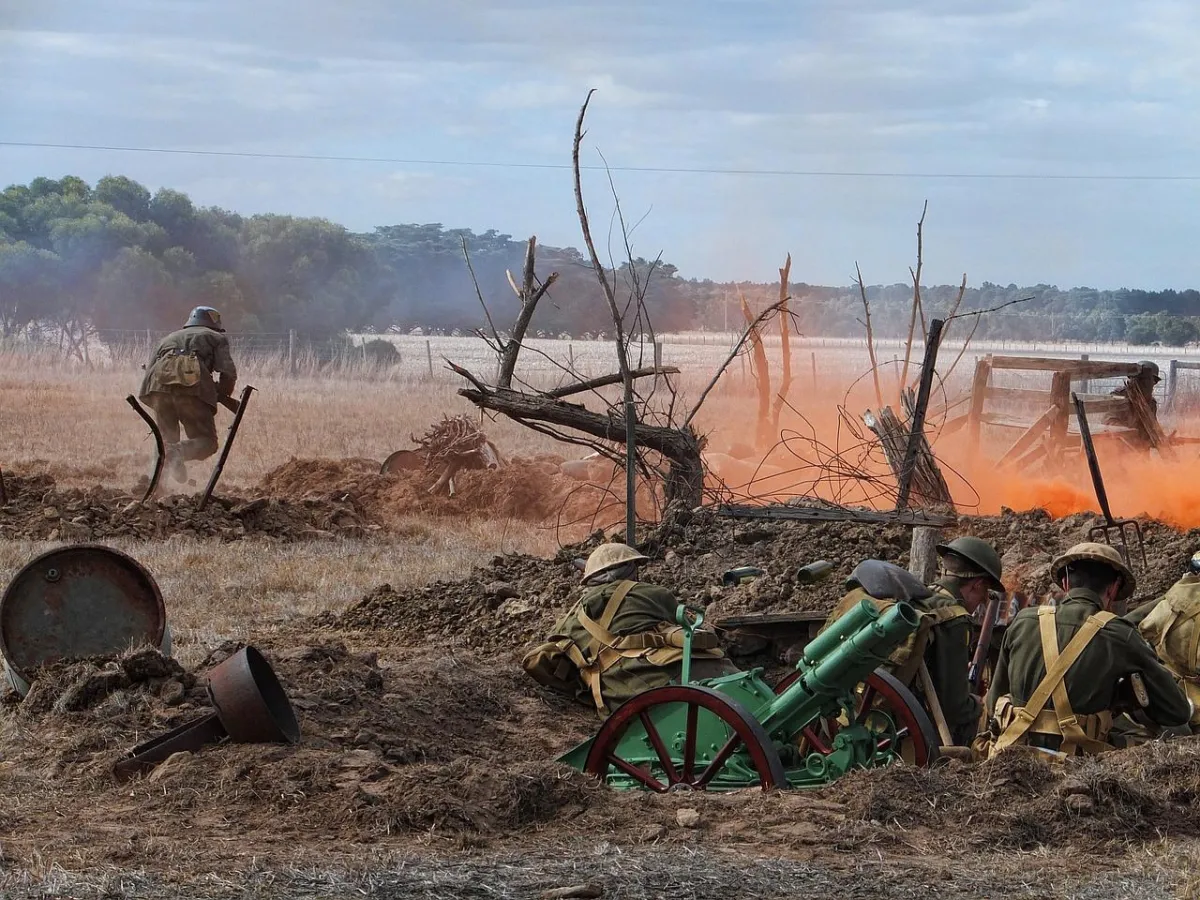🎓 New: Get free revision tips + discounts via WhatsApp – Join Here

Journey's End – A GCSE English Analysis
Journey's End – A GCSE English Analysis
Journey's End by R.C. Sherriff is a powerful First World War drama that offers GCSE students a profound exploration of the psychological and emotional toll of trench warfare. Set in a British dugout near Saint-Quentin, France, in 1918, the play follows a group of officers over four tense days leading up to a German offensive. Through its realistic portrayal of life in the trenches, Sherriff explores themes of courage, friendship, and the devastating effects of war. This analysis will help GCSE students understand the key themes, characters, and dramatic techniques that make Journey's End a timeless and emotionally charged play.
Key Themes in Journey's End
1. The Reality of War
Sherriff challenges the romanticised view of war by presenting the harsh and grim conditions faced by soldiers. The cramped, rat-infested dugout symbolises the dehumanising effects of trench warfare.
Key Quotation:
"The light 'ud make your eyes ache in 'ere."
This simple line from Mason reflects the absence of basic comforts. The constant darkness in the dugout mirrors the psychological toll on the soldiers, reinforcing the bleak reality of their situation.
Key Quotation:
"I've only done eighteen months. I'm a rookie compared with most of them. Three years! They're — they're not the same men any more."
Osborne's observation highlights how prolonged exposure to combat fundamentally changes people, stripping away their humanity.
2. Psychological Effects of War
The play offers a raw and honest exploration of the mental strain experienced by soldiers, particularly through the character of Stanhope.
Key Quotation:
"If I went up those steps into the front line — without being doped with whisky — I'd go mad with fright."
Stanhope's reliance on alcohol reflects his struggle to cope with fear and trauma.
Key Quotation:
"D'you think I want to leave Raleigh here — when — I know we're going to — to be blown to bits?"
This emotional outburst exposes Stanhope’s inner conflict and the burden of leadership, knowing the likely outcome for his men.
3. Class and Social Hierarchy
Despite the shared danger of war, British class distinctions persist among the officers and soldiers.
Key Quotation:
"I may have been a schoolmaster in peace time, but I'm still an officer."
Osborne’s reminder to Raleigh reinforces how military ranks mirror civilian social hierarchies.
Key Quotation:
"The Colonel's pleased with our work and our men like us. What more can a colonel and men want?"
Stanhope’s rhetorical question reflects the tension between maintaining authority and ensuring the men’s loyalty.
4. Friendship and Camaraderie
Amidst the horror of war, deep bonds form between the men as they face death together.
Key Quotation:
"You know, he's a funny chap. Last time we came out here he told me if anything happened to him I was to have that little pipe of his."
Osborne’s quiet recollection highlights the emotional depth of their friendships, symbolised by the exchange of personal items.
Key Quotation:
"To take a little boy like that and throw him into — into hell—"
Stanhope’s protective attitude toward Raleigh reveals the fraternal bonds that develop in the trenches.
Character Analysis
✅ Captain Dennis Stanhope
A once-promising student and rugby player, Stanhope is now hardened by three years of combat.
His dependence on alcohol reflects his desperate attempt to maintain composure.
Key Quotation:
"Oh God, why did Jimmy have to die? I might have gone on for years and years and years."
Stanhope’s grief after Osborne’s death reveals his emotional vulnerability and the stabilising role Osborne played in his life.
Lieutenant Osborne ("Uncle")
Osborne is the steady and calming presence among the officers.
His calm demeanour reflects his quiet courage and acceptance of the inevitable.
Key Quotation:
"It's funny, isn't it, how one can talk in quite an ordinary voice and think about quite ordinary things when — when there's only about an hour—"
Osborne’s reflective tone underscores his dignified acceptance of the dangers they face.
Second Lieutenant Raleigh
Raleigh is the naive newcomer who represents youthful innocence.
His transformation from idealism to disillusionment reflects the harsh reality of war.
Key Quotation:
"It — it all seems rather different — somehow."
Raleigh’s understated comment captures his loss of innocence after experiencing the horrors of combat.
Dramatic Techniques
1. Confined Setting
The claustrophobic dugout represents both the physical and psychological entrapment of the characters.
2. Offstage Action
Major combat events occur offstage, shifting the focus to the characters’ emotional and psychological states.
3. Realistic Dialogue
Sherriff’s use of naturalistic speech patterns, combined with meaningful silences, enhances the authenticity of the characters.
Key Quotation:
"Is it all — worthwhile? I mean — if Germany and we — and France — and all the others — fought like this for ever and ever — would it matter? — I mean — would it?"
Trotter’s rare philosophical moment exposes the deeper existential questions raised by the war.
Conclusion
Journey's End remains powerful because it avoids both sentimentality and cynicism. Sherriff presents ordinary men facing extraordinary circumstances with quiet dignity, making the play a timeless exploration of courage, friendship, and sacrifice.
Top Tips for GCSE Students:
Focus on how Sherriff uses dialogue and stage directions to reveal character depth.
Analyse how the play’s structure builds tension toward its inevitable conclusion.
Consider how the play’s anti-heroic portrayal of warfare challenged traditional notions of heroism when first performed in 1928.
Journey's End continues to resonate with modern audiences because it explores universal themes of humanity, resilience, and the psychological cost of war.
©2025 Uplevel Academy

